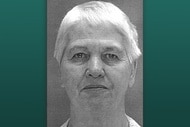Create a free profile to get unlimited access to exclusive videos, breaking news, sweepstakes, and more!
Who Is Reginald McFadden, And How Did His Killing Spree Affect The Pennsylvania Legal System?
Prior to Reginald McFadden’s 1994 killing spree, a 3-2 majority vote was all that was needed for a prisoner to be recommended for commutation in Pennsylvania.

There are more than 5,000 prisoners in Pennsylvania serving life sentences without the possibility of parole.
This is the second highest such prison population in the United States, second only to Florida, according to Allentown’s Morning Call newspaper.
One in 10 “lifers” nationwide were sentenced in Pennsylvania, a result of the state’s mandatory sentencing laws that guarantee life without parole for both first- and second-degree murder convictions.
More than half were 25 or under at the time of their sentencing, with black Pennsylvanians receiving life without parole at a rate 18 times higher than white offenders, according to The Philadelphia Inquirer newspaper.
The one way out of a life sentence in Pennsylvania is to receive a commutation from the governor, and this can only occur after a unanimous vote of recommendation by the state’s five-member Board of Pardons.
A more moderate 3-2 majority vote was once all that was needed for a prisoner to be recommended for commutation, but that was before Reginald McFadden walked out of prison in 1994 and went on a murderous crime spree.
McFadden hadn’t had an easy life. One of 10 children, McFadden claimed his stepfather frequently abused him, sometimes beating him with an electrical cord, according to The New York Times.
He had been arrested 17 times before the age of 16, according to New York’s Journal News newspaper. In December 1969, at 16, he and three other young men robbed and murdered 66-year-old Sonia Rosenbaum, according to court documents.
He was subsequently convicted of murder of the first degree, burglary, aggravated robbery, larceny, and conspiracy and sentenced to life in prison.
Over the ensuing decades, McFadden would repeatedly file applications for clemency, citing his achievements while incarcerated, such as earning a high school equivalency diploma and certificates in haircutting and tree surgery. He also, however, was penalized for an escape attempt and assaulting other inmates, according to The New York Times.
McFadden again applied for clemency in 1992, supported with statements from psychologists and corrections officials who praised his role in helping quell a 1989 prison riot. The Board of Pardons voted 4 to 1 to recommend commuting his sentence, with the stipulation that he be released to a halfway house for a period of two years, reported The New York Times.
Then-Pennsylvania Governor Robert P. Casey pardoned McFadden, and he was released on July 7, 1994.
Rather than going into a monitored halfway house, however, he was released in Rockland County, New York, and ordered to meet around three times a month with a parole officer in Peekskill. McFadden moved into an apartment in Nyack and took up multiple jobs that were found for him by his parole sponsors.
On Sept. 6, 1994, McFadden abducted 42-year-old computer programmer Robert Silk near his home in Elmont, New York, on Long Island. He beat him to death and dumped his body in a Rockland County creek, where it was discovered in March 1995, according to The New York Times.
McFadden was later captured by security cameras withdrawing money from multiple banks using Silk’s ATM car while driving his car, reported the Journal News.
Weeks later, on Sept. 21, McFadden attacked 55-year-old Jeremy Brown while she was taking out the garbage at her home in Nyack. Over the next five hours, he repeatedly raped and beat her before driving her to an ATM machine and making her withdraw money, which he stole along with some jewelry, according to the news service UPI.
She survived the attack and was able to provide authorities with key details about McFadden, including a physical description.
The following week, McFadden attacked 78-year-old retiree Margaret Kierer as she walked home from the Long Island Railroad in Floral Park, New York. He raped, strangled, and stabbed her to death and was later seen on security camera footage using Kierer's ATM cards to remove cash, according to The Morning Call.
McFadden was arrested on rape charges after a car stop and chase on Oct. 6, 1994. Police found jewelry belonging to Brown and Kierer in his possession at the time of his arrest.
He was later charged with Kierer and Silk’s murders.
During his rape trial, McFadden defended himself, even cross-examining victim Jeremy Brown. But on August 1995, he was found guilty of rape, robbery, and assault, according to newspaper The Buffalo News, and sentenced to 37 and a half to 75 years in prison.
Telling his lawyer to "get it over with," McFadden pleaded guilty to Kierer’s murder the following month, according to The New York Times. He was sentenced to 25 years to life in prison and received a second 25 to life term in March 1996 for the Silk murder, according to Journal News.
He is currently incarcerated at the Attica Correctional Facility in upstate New York.
McFadden’s crime spree lasted only 92 days, but his actions would leave a mark on the Pennsylvania penal system that lasts until the present day.
Pennsylvania lawmakers began tightening commutation requirements, and in 1997, voters approved an amendment to the state constitution that mandated a unanimous vote from the Board of Pardons before any commutations could make their way to the governor's desk, according to Philadelphia PBS station WHYY.
“There was understandable public outrage, and the board went from requiring a simple majority in order to commute a life sentence to five to nothing,” Pennsylvania Lt. Gov. John Fetterman said on “Kim Kardashian West: The Justice Project,” streaming now on Oxygen. “And that effectively ended the process because it’s a high threshold, and attorney generals historically oppose clemency.”
“Until McFadden, there was hope that the board would give you a fair shake,” Gregory Knight, an attorney who represents prisoners seeking commutations, told the Pennsylvania Capital-Star newspaper in 2019. “But the perception after McFadden was that you’re wasting your time.”
In recent years, there has been a renewed call for prison reform nationwide. This includes a bipartisan push in Pennsylvania to lower the threshold for commutation recommendations, according to WHYY.
“We really are in a unique position in Pennsylvania for the first time since the tragedy to rewrite the law,” Fetterman told “Kim Kardashian West: The Justice Project.”
Kim Kardashian West met with Lt. Gov. Fetterman, who is working to reform the state’s commutation process, to discuss the case of David Sheppard along with Sheppard’s friend and advocate, George Trudel, and advocate Elizabeth Geyer.
Sheppard was convicted of second-degree felony murder for the 1992 shooting death of a pharmacy owner. Although he was not the shooter, Sheppard faced a life sentence.
In December 2019, the state’s board of pardons unanimously approved his application for clemency, and Gov. Tom Wolf signed off on his commutation.
“I think everyone is aware of the potential risk of somebody coming out and committing a crime, so I’m very mindful of that … Millions of people are behind bars that just don’t deserve to be. There just has to be a balance. There has to be a better system than what we have now,” Kim Kardashian West said.
To learn more, watch “Kim Kardashian West: The Justice Project,” streaming now on Oxygen.com.































